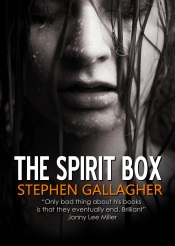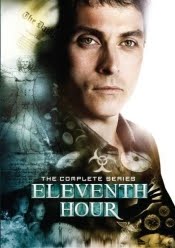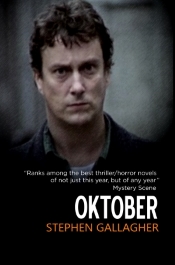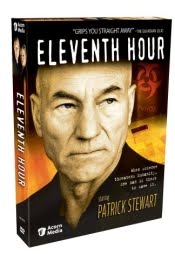*I believe that a limited number of the posters may be on sale at the venue, but don't quote me on that just yet. SGJust a friendly heads-up that, following the sold-out run of The Hallowe’en Sessions in 2012, we’ve put together a new horror anthology play which will run for two weeks in March. We hope you’ll come along and be terrified.
The Ghost Train Doesn’t Stop Here Anymore will run at the Tristan Bates Theatre from the 7th to the 19th of March. Our hostess is Jenny Runacre (Jubilee, The Final Programme, The Passenger, The Canterbury Tales, The Duellists, Husbands, The Creeping Flesh, Brideshead Revisited, etc) and our monsters are Claire Louise Amias as the Vampire, Jamie Birkett as the Broken Doll, Billy Clarke as the Frankenstein Monster, Jonathan Rigby as the Devil and James Swanton as the Ghost, with Grace Ker as the Ticket Inspector.
The play is written by Christopher Fowler (the Bryant and May books, Hell Train), Stephen Gallagher (Valley of Lights, The Bedlam Detective), Sean Hogan (The Devil’s Business), Kim Newman (Anno Dracula, The Secrets of Drearcliff Grange School), Lynda E. Rucker (The Moon Will Look Strange), Robert Shearman (Doctor Who, Remember Why You Fear Me), and Lisa Tuttle (The Silver Bough, The Mysteries). It’s a Bad Bat Production, produced by Ellen Gallagher and Steve Jordan.
The lovely poster is by Graham Humphreys*.
Most importantly, if you haven’t done so already, Book your tickets here.
Monday 22 February 2016
Ghost Train News
From Kim Newman:
Wednesday 10 February 2016
Oktober Unseen
Back in '97 I blagged my way into directing an ITV miniseries based on my novel Oktober. I say blagged, because that's pretty much how it happened; at an opportune point I inserted myself into the process in such a way that everyone assumed everyone else had signed off on it. To quote producer Lynda Obst, if you make it a game of "Mother, May I?" the answer is always going to be no.
By then I'd written a certain amount of TV but I'd never been to film school, no BBC training course, didn't have a showreel that would stand professional scrutiny. In one big step I was at the helm of a three-country shoot with a budget over two and a half million. It was challenging, terrifying, exhilarating. Fortunately I was surrounded by some terrific professionals, and even those who'd formed a low opinion of my abilities gave 110% to the work.
For my part, I learned as I went. I overthought my shot lists and gave too little attention to the actors. Some stuff worked out better than I'd dared hope. Other stuff, I really wish I could go back and do right over. But there it is.
Our cinematographer was the late Bruce McGowan. Liverpool-born, his previous credits included Letter to Brezhnev and female boxing movie Blonde Fist. Bruce had a gentle, subtle touch with lighting and, I'll be honest, he sometimes drove everyone up the wall with the time he took to get it just right. Every day he showed up convinced that he was going to be fired. All through the day, the 'sparks' would grumble. Every night he sent magic off to the lab.
Oktober was filmed in 16x9 widescreen on Super-16 negative stock, from which two versions were transferred. The show was broadcast in the old 'fullscreen' format - then already well on its way out, but that's ITV for you - while the widescreen master tapes went into storage, never to be seen until now. The distributor wouldn't wear the expense of technical checks for foreign sales or DVD licensing.
But my involvement with Stan Lee's Lucky Man has meant working with Carnival again, and it's been an opportunity to pursue this old obsession. Here, for the first time - albeit at YouTube quality - is a short sample of Bruce's work as it was meant to be seen.
By then I'd written a certain amount of TV but I'd never been to film school, no BBC training course, didn't have a showreel that would stand professional scrutiny. In one big step I was at the helm of a three-country shoot with a budget over two and a half million. It was challenging, terrifying, exhilarating. Fortunately I was surrounded by some terrific professionals, and even those who'd formed a low opinion of my abilities gave 110% to the work.
For my part, I learned as I went. I overthought my shot lists and gave too little attention to the actors. Some stuff worked out better than I'd dared hope. Other stuff, I really wish I could go back and do right over. But there it is.
Our cinematographer was the late Bruce McGowan. Liverpool-born, his previous credits included Letter to Brezhnev and female boxing movie Blonde Fist. Bruce had a gentle, subtle touch with lighting and, I'll be honest, he sometimes drove everyone up the wall with the time he took to get it just right. Every day he showed up convinced that he was going to be fired. All through the day, the 'sparks' would grumble. Every night he sent magic off to the lab.
Oktober was filmed in 16x9 widescreen on Super-16 negative stock, from which two versions were transferred. The show was broadcast in the old 'fullscreen' format - then already well on its way out, but that's ITV for you - while the widescreen master tapes went into storage, never to be seen until now. The distributor wouldn't wear the expense of technical checks for foreign sales or DVD licensing.
But my involvement with Stan Lee's Lucky Man has meant working with Carnival again, and it's been an opportunity to pursue this old obsession. Here, for the first time - albeit at YouTube quality - is a short sample of Bruce's work as it was meant to be seen.
Tuesday 9 February 2016
Flowers for Algernon, Japanese Style
 |
| Book cover art by Chris Moore |
So I finally got around to creating a wired network using the house mains. Last night I investigated some of the free programming out there, most of which is terrible but wow, there's so much of it... YouTube alone is an indiscriminate and infinite warehouse of curiosities, not just the usual clips and memes but entire shows and movies from yesteryear, some legit, some questionable. Among them was, uploaded in its entirety, the 1969 Chicago-shot movie based on Keith Laumer's novel The Monitors. I'll venture to say it was not great. I didn't watch it all, but I find that a meal rarely gets better after a first bad mouthful.
The evening's unexpected discovery was Algernon ni Hanataba wo, a 10-part Japanese serial based on Flowers for Algernon. It felt like a challenge but I did watch the entire first episode, more out of curiosity than anything else, and found myself being won over by its eccentric charm (I'd had wine).
If you don't know the short story by Daniel Keyes, seek it out. You won't be sorry.
The Charlie Gordon figure is called Sakuto and is played by former boy band star Tomohisa Yamashita. The character set and situations have been massively expanded, obviously, but allowing for cultural shift and different approaches to style it seems to be honouring the spirit of the original. Simpleminded Sakuto works for a floral delivery company which employs young ex-offenders. For him they're a surrogate family, their banter more that of brothers than the edgier mockery of the source story. The first hour is spent mostly in his world, counterpointed with the lives of the staff at the lab whose director is angling to seek a human subject to take the Algernon experiment to the next level. There's knockabout comedy, romantic misunderstandings, flashbacks to Sakuto's childhood rejection by his disappointed mother. It's beautifully shot and is often overwhelmed by excessively sentimental music.
Will it sustain for an entire series? I doubt that I'll go the full course but the core of Keyes' idea, the innocent who grows into awareness only to foresee his own decline, is a robust one. I can imagine it developing along the lines of Limitless, perhaps. But if you'd asked me which well-known short story might generate 10 hours of Japanese TV, this wouldn't have been the first to spring to mind.
Subscribe to:
Posts (Atom)





































